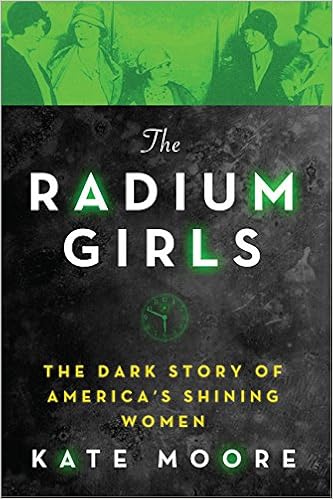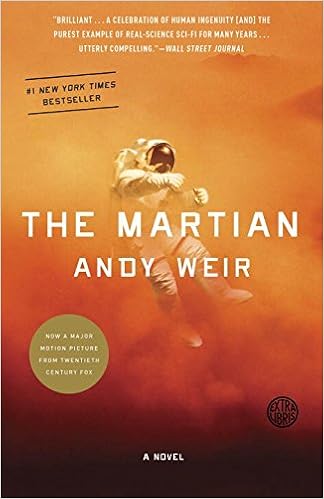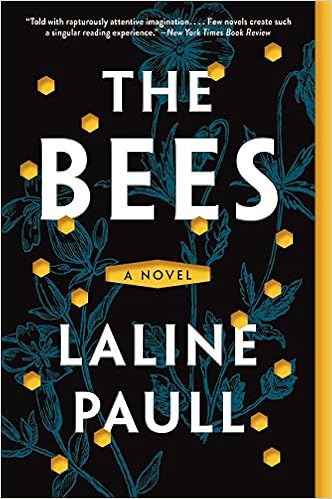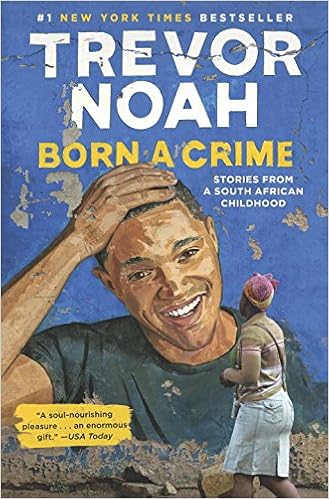Oh, how I loved...and fear
The summer book club decided on The Handmaid's Tale for its selection, which interested me because I had binge-watched the Emmy nominated series while I was home with the baby (and my older daughter was at preschool).
The premise is that fertility had declined such that babies are a precious commodity, as are the women who can still have them. In the midst of this, a religious totalitarianism has seized and is working on replacing the government of large segments of America with the government of Gilead, run by "commanders" (seemingly of aspects of policy). In the middle of the novel and the series, Offred, the main character, explains:
"It was after the catastrophe, when they shot the president and machine-gunned the Congress and the army declared a state of emergency. They blamed it on the Islamic fanatics, at the time."
Offred is a Handmaid, one of those women who is assumed to be able to have children, having a young daughter with her husband Luke when she was still June. Once June was seized by the authorities and sent to the Red Center, she loses her identity and is forced to become a baby-making vessel for a commander and his wife.
The name Offred is literally "of Fred," in that her only identity is to serve her master. What is purported to be a noble profession is then a type of slavery, but how the character (and other characters) react to this reality is at the core of the novel and the series. As the commander says in both:
"Better never means better for everyone, he says. It always means worse, for some."
As with any book "made into a movie," I was very curious to see how the adaptation stayed true to and deviated from the novel. Often I read the book first and then I'm disappointed by the adaptation. For example, when I read Ken Follet's
Pillars of the Earth (which is long but sooo worth it), I could easily see how this epic would make a good series. Unfortunately, the
miniseries skipped over important backstory and reduced several rich characters into unimpressive stereotypes. Additionally, the architecture, which was central to the story, was glossed over. To quote 45, "SAD."
So, perhaps my viewing of the series prior to reading the novel was fortunate, in that I was able to judge the series on its own merits, which are numerous indeed. First, the acting from the central characters was fantastic. Secondly, the stream of consciousness style feels fresh but logical, at once authentic and well sequenced. My criticism is that it dragged a bit in the middle of the series (though the Luke episode was worth the wait) and the episodes grew so dark that they were tough to watch... and I mean that literally, as I had to adjust the screen resolution to make out what was going on in many scenes. However, the season finale was well done, leaving just enough of a cliffhanger to make me come back for
season 2, while giving enough closure to not disappoint if that was the last episode.
In case it hasn't been clear, I have been avoiding major plot points thus far as to avoid spoilers, and I will continue to do so to the best of my ability (and warn if I can't). With that said, when I began to read the book, I was surprised that it had the same stream of consciousness style as the series: often June/Offred would be in the Handmaids' present and then flashback to the Red Center or the times before. As
Variety reviewer
Sonia Saraiya said in
her review of the series:
Because the story of “The Handmaid’s Tale” is that women are not merely
vessels —and even in the midst of a brutal regime, life demands to be
lived. Offred remembers her old life. She used to be a book editor with a
husband and daughter of her own. The story jumps between Offred’s life
in Gilead and the times she smoked pot with her friend Moira (Samira
Wiley) or lounged on the beach with her daughter Hannah (Jordana Blake) and
husband Luke (O-T Fagbenle).
On film, it was easy to distinguish these shifts in time, as the setting would change (along with outfits); in the novel, these shifts took a bit of getting used to, and more than once I found myself having to go back and reread because I realized that there was a shift a little too late. While I appreciated the style (especially once I finished the book), I wondered if this would have been much more confusing for those who hasn't seen much of the plot unfold already.
On the other hand, because I had to pay closer attention, I was better able to appreciate the artistry of the writing, with images such as this description of those hooded men hanged for political "crimes" and left to rot for all to see:
"The heads are the heads of snowmen, with the coal eyes and the carrot noses fallen out. The heads are melting."
In images such as this, we have a window not only into Offred's world, but also her subconscious: what she lives everyday is unreal, cold, and requiring escape.
I also appreciated the changes the makers of the series had to make when it came to technology and style. Writing in the 1980s, Atwood wisely left her discussions about technology vague, and the computools that may have been a bit futuristic at the time of writing are easily imagined today. Cattle prods and guns have also not changed much; however, they makers of the series did update the technology to reflect our current capabilities, and especially in the flashback to the "before time." This avoids the dating that the book suffers from with the cassette tapes and legwarmer references and makes it feel more relevant.
I found it interesting that the series made the commanders and wives younger, though this is less surprising in Hollywood. The effect is to create more gray areas for Offred, as she has to compete with the beautiful (and not crippled) Serena Joy and struggle with the sex appeal of the commander (who is clearly identified as Fred Waterford in the series, as opposed to the nameless commanders of the novel). The pity June feels for the sad old people portrayed in the novel (though still powerful, cruel, and selfish) is diminished in the series, making them at once feel more dangerous but also more like her potential equals.

I also liked the changes the series made to several characters and situations to facilitate the drama, though they did somewhat change the warnings embedded in the novel:
Luke was not only BLACK in this version (an interesting change, given that at the end the historical notes discuss a quest to preserve the white race), but he also got his own storyline and episode. Knowing what happens to him really enriches and complicates the story!
Moira was also black, showing the creators of the show injecting yet another level of rebellion into her character; although she is a lesbian in the book, the series really clarifies just how progressive and rebellious she is. I won't spoil what happens in the series, but let's just say, I'm glad we hear more from Moira in the series than the book!
Janine also gets a unique new story line in the series, and while she is a creature to be pitied in the book AND the series, she is able to earn back some agency in the series, and helps lead to the dramatic conclusion for Offred that is very similar to the novel, but also dramatically different in its messaging. One big change is the storyline of her baby; the series shifts the focus a bit in terms of the fertility problems...and that's all I can say without providing big spoilers.

One line that encapsulates both the series and book is that: "Humanity is so adaptable, my mother would say. Truly amazing, what people can get used to, as long as there are a few compensations." Both the series and novel really make you think about how relatively easy it would be to fall into the traps of the world of Gilead. How hard would women really fight for their rights? Would power really be so easily wrenched from the masses? How gullible are people--and what lengths will they go to in preserving their own interests?
While many of the most important premises and poignant lines from the novel are maintained in the series, many details are, perhaps necessarily, left out. One that resonated with me was June's memory of an interview with a mistress of a Nazi official that she remembers setting on TV:
"She did not believe he was a monster. He was not a monster, to her. Probably he had some endearing trait: he whistled, offkey, in the shower, he had a yen for truffles, he called his dog Liebchen and made it sit up for little pieces of raw steak. How easy it is to invent a humanity, for anyone at all. What an available temptation. A big child, she would have said to herself. Her heart would have melted, she’d have smoothed the hair back from his forehead, kissed him on the ear, and not just to get something out of him either."
This allusion helps make it all too clear how people can and have excused and normalized abhorrence, but once faced with the truth, they must acknowledge their complicity. (In this case, the interview was followed by a screen that noted the woman killed herself following the interview...presumably having realized the truth about her actions.)
This is reflected in Offred's reflection on the insidious changes to her society, and how, as in the Nazi-driven Holocaust, the silence of the many allowed for crimes to be committed that would change the world:
"here were marches, of course, a lot of women and some men. But they were smaller than you might have thought. I guess people were scared. And when it was known that the police, or the army, or whoever they were, would open fire almost as soon as any of the marches even started, the marches stopped. A few things were blown up, post offices, subway stations. But you couldn’t even be sure who was doing it. It could have been the army, to justify the computer searches and the other ones, the door-to-doors. I didn’t go on any of the marches. Luke said it would be futile and I had to think about them, my family, him and her. I did think about my family. I started doing more housework, more baking. I tried not to cry at mealtimes. By this time I’d started to cry, without warning, and to sit beside the bedroom window, staring out. I didn’t know many of the neighbors, and when we met, outside on the street, we were careful to exchange nothing more than the ordinary greetings. Nobody wanted to be reported, for disloyalty."
In the context of America today, this book, and this series, feel eerily possible, and entirely too scary.


















